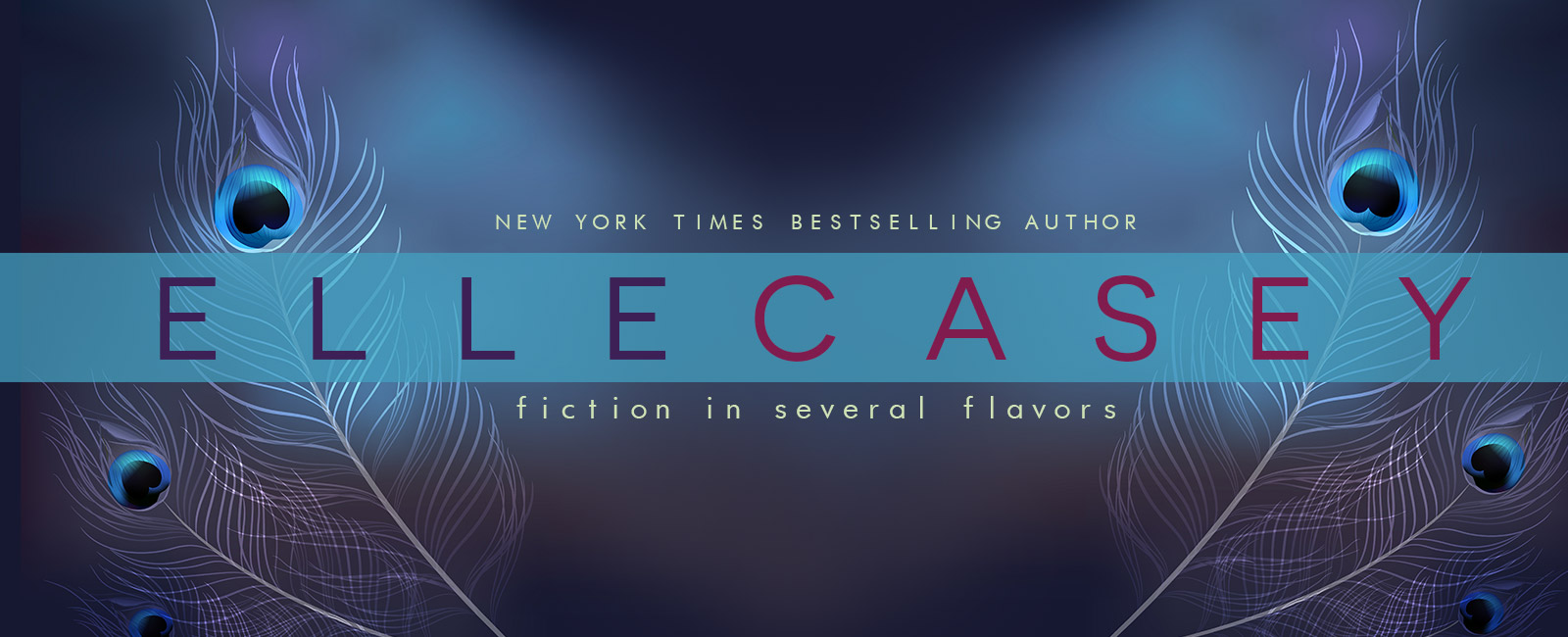I don't profess to know the publishing industry inside and out. I'm just a reader and small-time self-published author. But I'm seeing some things coming down the pike, things that are already here, really, and I got so excited and scared about it, I decided to write a post. And here I be.
Publishing used to work like this:
- Writer slaves over a manuscript until it is beyond perfect.
- Writer queries agents, using the format they require, paying very close attention to every last detail. Better do that, or the agent will throw it in the trash and never respond.
- Get rejected, sometimes hundreds of times, because the book you proposed, while well-written and compelling, will be too hard to sell. It doesn't fit the mold. Publishers rarely take risks. They buy what is already selling.
- Eventually, maybe, if you are lucky, an agent will agree to read more of your work. You send them more. It sits in a pile of other manuscripts.
- Or, try and skip the agent and send your manuscript right to a publisher. Your manuscript sits in a slush pile, along with a few thousand others, probably never even being read.
- If you get an agent, and the agent likes your manuscript, the agent tries to find someone to publish your work.
- Maybe if you're lucky, like lottery-winner lucky, the agent sells the book, and you get someone to pay you a $5,000 advance for it. That is probably the only money you will ever see from it. You've earned less than minimum wage, and you're expected to market the hell out of it, usually on your own dime.
Publishing is now starting to work like this:
- Writer slaves over a manuscript until it is beyond perfect.
- Writer pays someone to do a cover.
- Writer uploads it to Amazon.com, itunes, Kobo, Smashwords, Barnes & Noble, etc.
- Writer starts selling books. Sometimes, a LOT of books.
- Writer keeps 35%-70% of the retail sales price as the royalty. This often equates to much much more than minimum wage.
- Writer gets a phone call…
The old-guard publishing industry is top heavy, with huge fixed expenses they cannot support anymore – big, expensive offices in New York City, lots of travel and perks, personnel, marketing costs, yadda yadda yadda. They're struggling to hang on to all of that, resisting the change that must come if they are to survive.
Or are they? Hmmmmm…. there are some strange winds blowing through Amazon ….
Something's been happening recently. Maybe you've read about it in the paper. Several indie authors who've found success with self-publishing have been wooed and won over by some of the Big 6 publishers and offered very lucrative advances – sometimes even in a bidding war with several publishers vying for the right to re-publish their already self-published books. Maybe you've heard the names: John Locke, Amanda Hocking, Jamie McGuire, Sara Fawkes, Hugh Howey, ohhhhh, there are many. I'm tired of writing names. Moving on.
Guess where the slush pile is now? Yeah. You got it. It's at Amazon.com! And when your book rises in the Best Seller lists and has staying power, you're gonna get a call from an agent wanting to represent you and publishers wanting to buy the rights to publish your book.
Why? Why is this happening, dammit? Because it's a no-risk proposition! The publisher already knows the book can sell. They can tell exactly how much it's selling by looking at the book's ranking. Anyone who's been in the Amazon game long enough can figure out pretty accurately how many units are being sold in a day by that ranking, right there on the product page. No need for insider information. It's almost too easy. Like shooting fish in a barrel, people!
Can you picture it? I'm the publisher. I'm the guy who used to slog through slush piles, or talk to agents who swore they had a book I'd love. Now I just hop on Amazon, click on the best seller list, look at the book's ranking, read some reviews, and keep an eye on it. If it still looks good, or better, in a few months, I pick up the phone. “Hello? Self-published author? Do you have an agent? We'd like to talk to you about your book…”
So think about it … We just cut out how much money in expenses for the publishers? Gajillions. And that's a pretty accurate number, folks. I did the math. They no longer have to pay advances to authors whose books don't sell. They no longer pay artists, editors, secretaries, copy boys, and all those other people to support books that might not sell! They are in the no-risk game now. Before, they'd sign up a stable of authors, and only a couple would hit it big. The rest would end up either marginally successful or as total flops (aka “financial losses”). Publishers act like they know how to pick winners, but any visit to the book store will show you they pick a whole hell of a lot more losers than winners. But not anymore! Fish. In. A. Barrel.
The best part of this whole situation is we no longer have publishers or agents or editors or committees telling us which books we can read, which books will be popular, which books will sell. We (the readers) get our choice of all the books that all the writers wanted to publish, and we're deciding which are the cream that should rise to the top. We are separating the wheat from the chaff.
Some argue it's too arduous of a task. That we need those gatekeepers to weed through the garbage for us since we only have so many hours in the day. Pish posh, I say! When you find a good book, through a promotion or a Facebook post, you tell your friends! You Tweet about it! You post a link on your Facebook! You, the reader, decides who is worthy of the big book contract. Vote with your reading dollars. Vote by telling your friends and family. Vote by tweeting. Vote by leaving a 5-star review, telling us all the reasons you loved the book. Vote, vote, vote. You decide.
Amazon's self-publishing and ebook revolution has empowered readers. Now it's up to the readers to seize the day, and spread the word about books they like. Get in that slush, pile, people, and pick the next best seller!
Now, I mentioned at the beginning of this post that I get scared when I think about this stuff. Mainly because things have changed so much, so fast, I have no way of predicting what might happen in the future. And I make a living selling my books on Amazon, so I'd hate to have to go do something else to support my family. I love writing too much to do that. I hope the readers keep voting for their favorites by reading and talking about what they're reading. No matter what, everything is in flux, and what's happening today might not be happening next year at this time. But it sure is exciting, no matter which way you look at it – with excitement or fear.




Well said. I try to tell everyone when I read a particularly good book, especially those by indie authors.
I don’t want you to have to go do something else either!
Yes, you are very good about that. And I appreciate it!! 🙂
I definitely couldn’t get a once a month fix from a “mainstream” author. I don’t know exactly what they do with the books, but I know Jamie McGuire finished Walking Disaster and we still have to wait until APRIL for it…
I feel like a dealer. 🙂
Sounds logical to me. When I made that cover and it went out over facebook, I ended up getting a lot of messages from prople asking aboit it. I got them onto your book that way 🙂
Keep up the good work! We will always buy and read your books, just so long as you keep writing them!
Cool. You’re gonna be famous! 🙂
Very well written and said. I hope this article reaches a wide audience!
The indie bestsellers are indeed becoming the slush pile as you’ve noted. Makes you wonder what’s happening to the original slush pile. I think prospective authors might want to take note -it may be more advantageous to try to build one’s brand independently than submit to publishing houses who are only tightening their fist. Not only will it give one experience in promotion and marketing, but it may expedite one’s chances to land a traditional publisher and/or agent -if one chooses to go that way.
I couldn’t agree with you more. The only risk is that a person might be one of those types who hates promotion and has a difficult time finding an audience, and then gets the wrong notion in his or her head that it’s not the promotion but the writing that is at fault. But in the end, I believe it’s easier to find an audience of readers than agents or publishers.
I agree. If a person isn’t willing to put in the work to educate his/herself about the business end of publishing and put a marketing plan into action, then self publishing won’t be the best option. It’s a lot of work, but like you I think it pays off in the long run if one works hard, is patient, and most of all doesn’t give up.
I wonder which way is more appropriate for a pessimist like me. I know my book sucks.
Fred, I haven’t read your book(s) yet, but I have read plenty of your forum posts, and I doubt very highly that anything you write sucks. 🙂